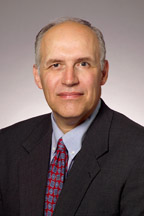Changes in Confidentiality
by Douglas S. Laird

The avalanche of publicity and political chest-beating about, the legal cures for the corporate sickness represented
by the likes of Enron, Tyco
and Worldcom
generate more confusion then consensus.
Most members of the business community have a general sense that conversations with their own lawyers are “private” or “secret” and not be disclosed under any circumstances. While this principle is still generally true, there are new trends that are causing changes to this deceptively simple point. Lawyers who defend businesses are increasingly concerned that the Attorney-Client Privilege and the general confidentiality provisions governing lawyers are eroding.
The avalanche of publicity and political chest-beating about the legal cures for the corporate sickness represented by the likes of Enron, Tyco and Worldcom generate more confusion then consensus. The press has run stories about the new Sarbanes-Oxley law and changes in the rules governing lawyers and their duty of confidentiality, especially in the corporate context, describing lawyers as “G-Men” doing the government’s bidding, or as private policemen disclosing the evil deeds of their own clients.
Despite this fanfare, the bottom line is that the Attorney-Client Privilege and the duty of confidentiality lawyers owe their clients remains reliable. But special caution is necessary in some circumstances so that the conversation you believed was secret does not end up in a court document or, worse yet, on the front page.
The hallmarks of the Attorney-Client Privilege are communications to and from a lawyer for the purpose of obtaining legal advice. Lawyers separately owe their clients a duty of confidentiality that applies not just to communications but to all information involved in the representation. In the litigation context, there is a third protection called the “Work Product Doctrine” that applies to preparation in connection with court cases.
The most drastic of the new confidentiality problems arises when a company is under investigation by a government agency or is a target in a criminal context. The government, most often on the federal level, requests a voluntary disclosure of information usually protected by the Attorney-Client Privilege and Work Pro-duct Doctrine in exchange for credit for cooperation. The implicit premise is that a company that refuses to cooperate likely will be prosecuted.
Another potential confidentiality problem is the American Bar Association’s revisions of its ethical rules that give lawyers discretion to reveal confidential information “to the extent the lawyer reasonably believes necessary to prevent substantial injury to the organization.” These new rules also permit a lawyer to disclose usually protected information to prevent or rectify a client’s crime or fraud. While these amendments have not been adopted in Kansas or Missouri, and may never be, they have been accepted by many states.
Another difficulty occurs where a company official has two roles, one of which is being a lawyer. This occurs when the in-house counsel provides legal and business advice. The Attorney-Client Privilege only applies to legal advice and, of course, sometimes it is difficult to determine the difference. A second example is when an outside lawyer serves on the board or as an officer. It is again difficult to divide legal advice from acting as a board member.
The ABA has established a Task Force to address some of these issues and it likely will submit proposals to try to strengthen and protect the Attorney-Client Privilege.
It is unrealistic to deny that the Attorney-Client Privilege and lawyer confidentiality generally is undergoing change. But many in the legal community believe that the important goals of promoting compliance with, and fair application of, the law will sustain and strengthen this important public policy.
If business people do not have faith that conversations with their lawyers will remain protected, there is strong incentive to not discuss issues with candor or to not contact the lawyer at all. While lawyers certainly are not the most favored professionals in our society, there is significant value in companies self-regulating to assure compliance with the many and varied regulations applicable to modern businesses. This goal can be achieved only with the assistance of lawyers. Without the involvement of lawyers to guide businesses in a private way, the corporate excesses that these new rules were designed to prevent likely will increase.
Douglas S. Laird is an attorney at Polsinelli Shalton Welte Suelthaus, PC and specializes in commercial litigation and lawyer ethics. He can be reached at 816.753.1000 or by e-mail at dlaird@pswslaw.com.